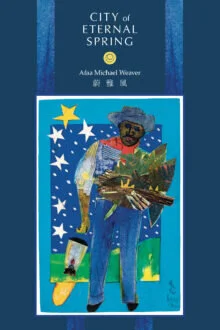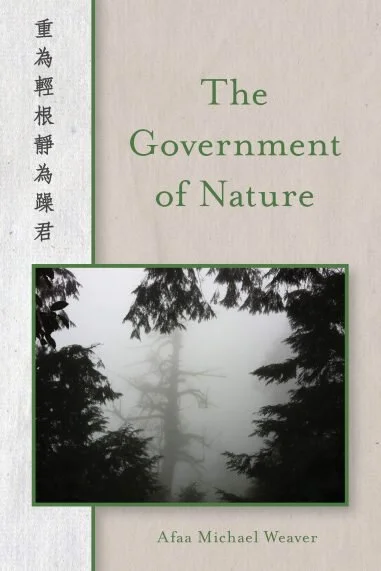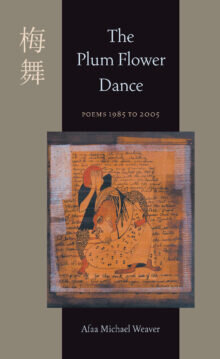Afaa Michael Weaver is a poet, playwright, and translator. He is the author of numerous poetry collections, most recently A Fire in the Hills (Red Hen Press, 2023). Other recent books include Spirit Boxing (Pitt Poetry Series, 2017); City of Eternal Spring (University of Pittsburgh Press, 2014), winner of the Phillis Wheatley Book Award; The Government of Nature (University of Pittsburgh Press, 2013), winner of the Kingsley Tufts Poetry Award; and The Plum Flower Dance: Poems 1985-2005 (University of Pittsburgh Press, 2007). Described by Henry Louis Gates, Jr as “one of the most significant poets writing today,” Weaver’s many honors include four Pushcart prizes, inclusion in Best American Poetry (2014, 2015), The May Sarton Award, a Pew Fellowship, a Fulbright scholarship to teach at National Taiwan University and Taipei National University of the Arts, and the Gold Friendship Medal from the Beijing Writers’ Association. As a playwright, in addition to an NEA fellowship, he won the PDI award in playwriting from the ETA Creative Arts Foundation in Chicago for his play Elvira and the Lost Prince. Some of his poetry has been translated into Arabic and Chinese, and, having studied at the Taipei Language Institute in Taiwan, Weaver himself has done translation and written poems of his own in Chinese.
The son of a sharecropper, he grew up in working class Baltimore, did a stint in the Army, and spent fifteen years as a factory worker, during which time he wrote intermittently and founded Seventh Son Press and the literary journal Blind Alleys. After 10 years of work on his first book, Weaver released Water Song in 1985, and won an NEA fellowship in the same year. Weaver’s early work was influenced by the Black Arts Movement, and his later poems have been compared by the Los Angeles Review of Books to the “personal, historic, epic, and spiritual” journey of Dante’s Divine Comedy “into the depths of human experience and suffering, and then back up and out.”
In an interview with Kaveh Akbar in Divedapper, he was asked about his iconic poem, To Malcolm X on his second coming and how it came about: “Malcolm X remains one of my central heroes for several reasons. There is that adamant resistance, but there is also the self-definition. He built himself organically out of his own experience. You can say that’s the American experience and I would agree, but in the specificity of being a black man in a predominantly white culture, there is another self-definition, another kind of organic growth that is not so much the boot strap theory.”
Weaver was the first African American poet to serve as Poet in Residence at Bucknell University’s Stadler Center, and has also taught at NYU, City University of New York, Seton Hall Law School, Rutgers University, the Bread Loaf Writers’ Conference, and he held an Endowed Chair at Simmons College for twenty years. He has been on the faculty at Cave Canem since its inception and in 1998 became Cave Canem’s first Elder. Afaa and his wife Kristen live in a small farmhouse in the Hudson Valley.







